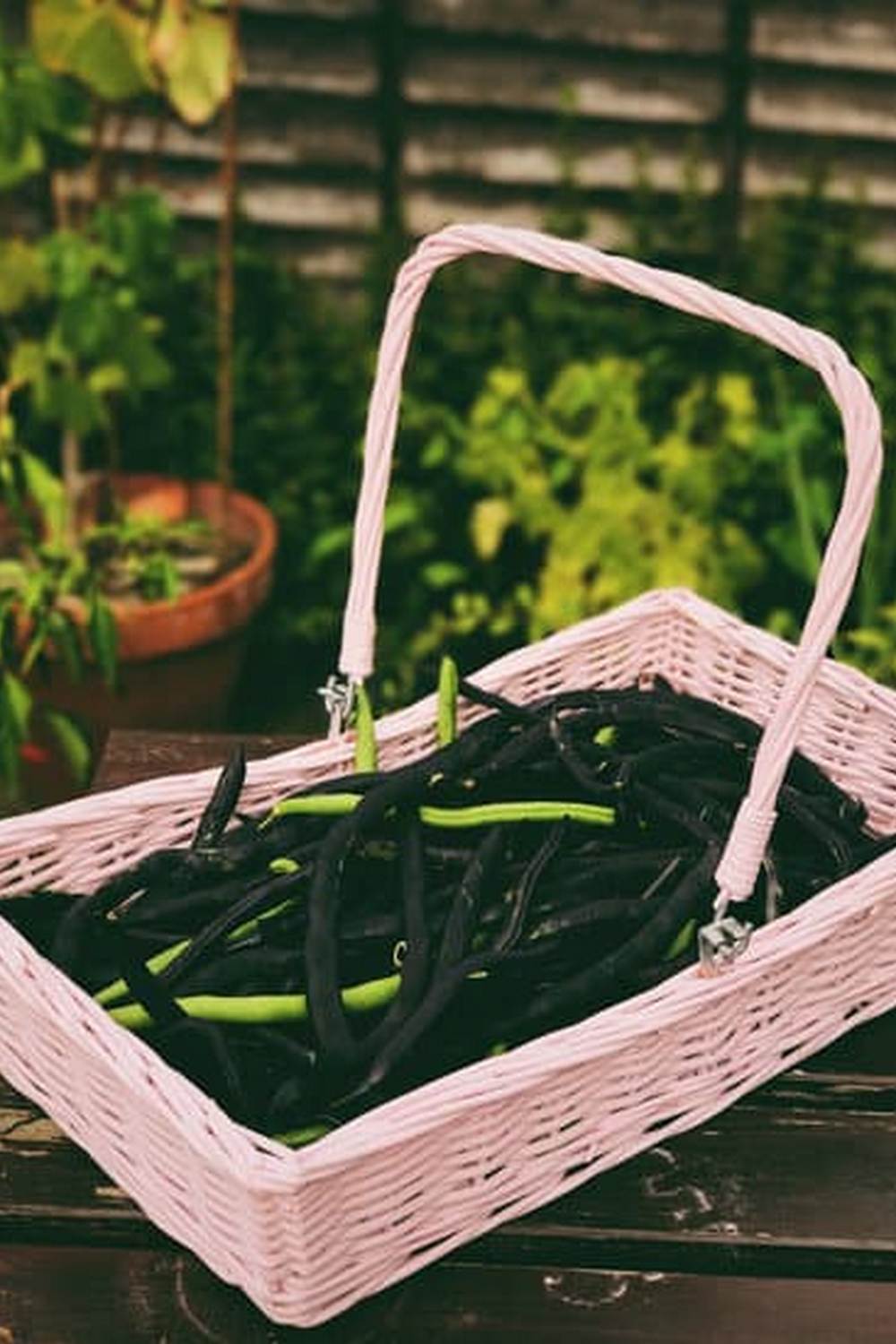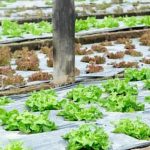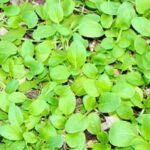Container vegetable gardening in Ontario is a popular and rewarding way to grow fresh produce, even if you have limited space. By utilizing containers, you can create a thriving garden on your balcony, patio, or even in a small backyard. With the right containers, soil, and plant selection, you can enjoy a bountiful harvest of vegetables right at home.
In this article, we will explore the ins and outs of container vegetable gardening in Ontario. From choosing the right containers and selecting the best vegetables to dealing with pests and maximizing sunlight, we’ll cover everything you need to know to have a successful container garden in Ontario.
Whether you’re new to gardening or simply looking for ways to maximize space and convenience, container vegetable gardening in Ontario offers an accessible and fulfilling way to grow your own food. With the right knowledge and techniques, you can enjoy the benefits of fresh produce right at your doorstep. Let’s dive into the world of container vegetable gardening in Ontario and learn how to create a thriving garden in any outdoor space.
Choosing the Right Containers for Your Vegetable Garden
When it comes to container vegetable gardening in Ontario, choosing the right containers is essential for the success of your garden. There are several factors to consider when selecting containers for your vegetable garden, including size, material, and drainage.
The first thing to keep in mind is the size of the container. Different vegetables have different root systems and space requirements, so be sure to choose a container that is large enough to accommodate the specific vegetables you plan to grow.
The material of the container is also important. Plastic containers are lightweight and inexpensive, but they can deteriorate over time when exposed to UV radiation. On the other hand, clay or terracotta pots are porous and allow for better airflow to the roots, but they can dry out quickly and may require more frequent watering. Additionally, wooden containers are a good option as they provide insulation for plant roots and can be quite durable.
Proper drainage is crucial for container vegetable gardening in Ontario. Without adequate drainage, plant roots can become waterlogged and susceptible to rot. To ensure good drainage, look for containers with several drainage holes at the bottom. If your chosen container does not have sufficient drainage holes, you can always drill additional holes to prevent water accumulation.
Selecting the Best Vegetables for Container Gardening in Ontario
When it comes to container vegetable gardening in Ontario, selecting the right vegetables is crucial for success. Not all vegetables are suitable for container gardening, especially in the specific climate of Ontario. However, there are several vegetables that thrive in containers and are well-suited for the Ontario growing season.
Best Vegetables for Container Gardening in Ontario
One of the most popular vegetables for container gardening in Ontario is tomatoes. They are relatively easy to grow in containers and can produce a bountiful harvest. Other great choices include peppers, lettuce, spinach, green beans, carrots, radishes, and herbs such as basil and parsley. These vegetables don’t require a lot of space to grow and can be quite productive when grown in containers.
Considerations for Ontario Climate
When selecting vegetables for your container garden in Ontario, it’s important to consider the local climate. Some vegetables may require more sun or warmth than others, so it’s essential to choose varieties that are well-suited for the Ontario climate. Additionally, some vegetables may have specific pest or disease resistance that makes them better choices for container gardening in Ontario.
Maximizing Harvest With Succession Planting
To maximize your harvest from your container vegetable garden in Ontario, consider practicing succession planting. This involves planting new crops as soon as the previous ones are finished producing. This technique can help you make the most of limited space and extend your harvest throughout the growing season.
By choosing the right vegetables and considering the unique aspects of gardening in Ontario’s climate, you can set yourself up for a successful container vegetable garden. With careful planning and selection, you’ll be able to enjoy a bountiful harvest of fresh produce grown right on your patio or balcony using container vegetable gardening in Ontario techniques.
Tips for Soil and Fertilizer for Container Vegetable Gardening in Ontario
When it comes to container vegetable gardening in Ontario, proper soil and fertilizer are essential for the success of your garden. The type of soil you use in your containers will directly impact the health and growth of your vegetables. In Ontario, the ideal soil for container vegetable gardening is a well-draining, high-quality potting mix that is specifically designed for container gardening.
It’s important to choose a potting mix that is lightweight and fluffy, as this will allow for proper root aeration and drainage. Avoid using regular garden soil, as it tends to become compacted in containers, hindering the growth of your vegetables. Look for a potting mix that contains organic materials such as peat moss, coconut coir, or compost, as these will provide essential nutrients for your plants.
In terms of fertilizer, container vegetables in Ontario will benefit from regular feedings throughout the growing season. Consider using a balanced liquid fertilizer that is formulated specifically for vegetables. These fertilizers typically contain the essential nutrients needed for healthy growth, including nitrogen, phosphorus, and potassium. It’s important to follow the instructions on the fertilizer label to avoid overfeeding or nutrient deficiencies in your plants.
One key consideration when it comes to soil and fertilizer in container vegetable gardening in Ontario is the limited space available to each plant. Since containers have a smaller volume of soil compared to traditional gardens, they can easily become depleted of nutrients. Regularly monitor the health of your plants and adjust your fertilization routine accordingly. With proper soil and fertilizer management, your container vegetable garden in Ontario will thrive and produce an abundant harvest.
| Soil & Fertilizer Tips | Container Vegetable Gardening in Ontario |
|---|---|
| Choose well-draining potting mix | Use specific potting mix designed for containers |
| Look for lightweight and fluffy potting mix | Avoid using regular garden soil in containers |
| Use balanced liquid fertilizer | Fertilize regularly with nutrients formulated for vegetables |
Watering and Maintenance for a Successful Container Vegetable Garden
Proper Watering Techniques
One of the most crucial aspects of container vegetable gardening in Ontario is ensuring that your plants receive adequate water. Due to the limited space in containers, it’s essential to water your vegetables regularly, especially during hot summer months. Be sure to check the moisture level of the soil frequently, as containers tend to dry out faster than traditional garden beds. Consider investing in a soaker hose or drip irrigation system to ensure even watering and prevent water wastage.
Pruning and Deadheading
Regular maintenance such as pruning and deadheading can contribute to healthier and more productive vegetable plants in containers. Remove any yellowing or diseased leaves, as well as spent flowers, to encourage new growth. Proper pruning also helps improve air circulation and reduce the risk of fungal diseases, which can be common in container gardening due to the limited space.
Fertilizing Routine
In addition to proper watering and maintenance, ensuring your container vegetable garden receives adequate nutrients is vital for successful growth. Consider using a slow-release fertilizer specifically formulated for vegetables in containers. Alternatively, you can also opt for organic fertilizers such as compost or fish emulsion to provide your plants with essential nutrients without the risk of over-fertilization.
By implementing these watering and maintenance techniques consistently throughout the growing season, you can ensure a successful container vegetable garden in Ontario while maximizing your harvest of fresh, home-grown produce.
Dealing With Pests and Diseases in Container Vegetable Gardening in Ontario
Container vegetable gardening in Ontario can be a rewarding experience, but it comes with its challenges. One of the biggest challenges that gardeners face is dealing with pests and diseases that can affect their plants. In a confined space such as a container, it’s important to be proactive in preventing and managing these issues to ensure a successful harvest.
When it comes to pests, common ones that you may encounter in your container vegetable garden in Ontario include aphids, spider mites, and caterpillars. These pests can wreak havoc on your plants if left unattended. One way to manage pest infestations is by regularly inspecting your plants for any signs of damage or the presence of insects. You can also use insecticidal soaps or neem oil as natural remedies to keep pests at bay.
In addition to pests, diseases such as powdery mildew, blight, and damping-off can also pose a threat to your container vegetable garden in Ontario. To prevent these diseases from spreading, it’s important to practice good sanitation by removing any affected plant material and maintaining proper air circulation around your containers. Using disease-resistant varieties of vegetables can also help minimize the risk of disease affecting your plants.
| Common Pests | Common Diseases |
|---|---|
| Aphids | Powdery Mildew |
| Spider Mites | Blight |
| Caterpillars | Damping-off |
Maximizing Space and Sunlight for Your Ontario Container Vegetable Garden
When it comes to container vegetable gardening in Ontario, maximizing space and sunlight is essential for the success of your garden. Limited space should not deter you from enjoying the benefits of growing your own vegetables at home. Here are some tips for making the most of the available space and ensuring that your plants receive adequate sunlight:
- Use vertical gardening techniques: Utilize trellises, cages, or stakes to grow vining vegetables such as tomatoes, cucumbers, and pole beans vertically. This can help save space and allows for better air circulation and sunlight exposure.
- Choose compact varieties: Opt for dwarf or bush varieties of vegetables that are well-suited for container gardening. These types of plants take up less space while still producing a bountiful harvest.
- Rotate your containers: If possible, move your containers throughout the day to ensure that they receive optimal sunlight. Pay attention to the sun’s movement and adjust the placement of your containers accordingly.
In addition to maximizing space, providing adequate sunlight is crucial for the growth and development of your container vegetable garden. Most vegetables require at least 6-8 hours of direct sunlight per day to thrive. Consider the following tips for maximizing sunlight exposure:
- Position containers strategically: Place your containers in areas that receive ample sunlight, such as a south-facing balcony, patio, or windowsill. Avoid placing them in shaded areas or where they may be blocked by buildings or trees.
- Use reflective surfaces: Reflective surfaces such as light-colored walls or mirrors can help bounce additional sunlight onto your vegetable plants, especially in small spaces with limited natural light.
- Monitor sun exposure: Regularly check how much direct sunlight your plants are receiving throughout the day. Adjust their placement as needed to ensure they get enough light to promote healthy growth.
By implementing these strategies, you can make the most of limited space and maximize sunlight exposure for your Ontario container vegetable garden, leading to a successful and abundant harvest.
Harvesting and Enjoying the Fruits of Your Container Vegetable Gardening in Ontario
Container vegetable gardening in Ontario can be a rewarding experience, especially when it comes time to harvest and enjoy the fruits of your labor. Whether you have been growing tomatoes, peppers, or herbs, the moment of harvest is always exciting. Here are some tips for making the most of your container vegetable garden:
- Plan your harvest: Before you start picking, take some time to plan out your harvest. Some vegetables should be picked when they are still small and tender, while others may need to fully ripen on the plant. Make sure you know the optimal time to harvest each vegetable in your container garden.
- Enjoy fresh meals: There’s nothing quite like the taste of freshly picked vegetables from your own garden. Use your harvest to create delicious and nutritious meals for you and your family. From salads to stir-fries, there are endless possibilities for using your homegrown produce.
- Preserve and share: If you find yourself with a surplus of vegetables, consider preserving them for later use. You can freeze or can extras to enjoy throughout the year. And don’t forget to share the bounty with friends and neighbors – spreading the joy of homegrown vegetables is one of the best parts of container gardening.
By following these tips, you can make the most of your container vegetable gardening in Ontario and enjoy a bountiful harvest all season long. Remember to savor the flavors of your hard work and appreciate the benefits of growing your own food, even in limited space.
Conclusion
In conclusion, container vegetable gardening in Ontario offers numerous benefits for both seasoned gardeners and beginners alike. By choosing the right containers, selecting the best vegetables for Ontario’s climate, and following essential tips for soil, fertilizer, watering, and maintenance, individuals can successfully grow their own fresh produce in limited spaces. Additionally, container gardening allows for easy pest and disease management while maximizing available space and sunlight.
One of the most significant advantages of container vegetable gardening in Ontario is the ability to enjoy fresh, homegrown produce regardless of living in an urban environment or having limited outdoor space. Whether it’s on a balcony, patio, or rooftop, individuals can take advantage of this gardening method to enjoy a bountiful harvest of vegetables throughout the growing season.
Furthermore, container vegetable gardening in Ontario promotes sustainability by reducing food miles and carbon footprint associated with store-bought produce. By embracing this form of gardening, individuals can take pride in knowing that they are actively contributing to environmental conservation while enjoying the fruits of their labor. Ultimately, container vegetable gardening in Ontario is a rewarding and practical way for residents to connect with nature and cultivate their own healthy and sustainable food source.
Frequently Asked Questions
What Is the Best Vegetable to Grow in a Container?
The best vegetable to grow in a container depends on the size of the container and the growing conditions. However, some popular choices for container gardening include tomatoes, peppers, lettuce, and herbs like basil and parsley.
What Are the Best Vegetables to Grow in Ontario?
Ontario’s climate is suitable for growing a variety of vegetables. Some of the best vegetables to grow in Ontario include tomatoes, cucumbers, beans, carrots, radishes, kale, and Swiss chard. These vegetables thrive in Ontario’s growing conditions and are well-suited for home gardens.
How Many Vegetables Can I Grow in a 5 Gallon Container?
In a 5 gallon container, you can grow one large vegetable plant such as a tomato or pepper plant. Alternatively, you can grow several smaller plants like lettuce or herbs in the same container. It’s important to consider the space requirements and root depths of the vegetables when deciding how many to plant in a 5 gallon container.

If you’re looking to get into vegetable gardening, or are just looking for some tips on how to make your current garden better, then you’ve come to the right place! My name is Ethel and I have been gardening for years. In this blog, I’m going to share with you some of my best tips on how to create a successful vegetable garden.





